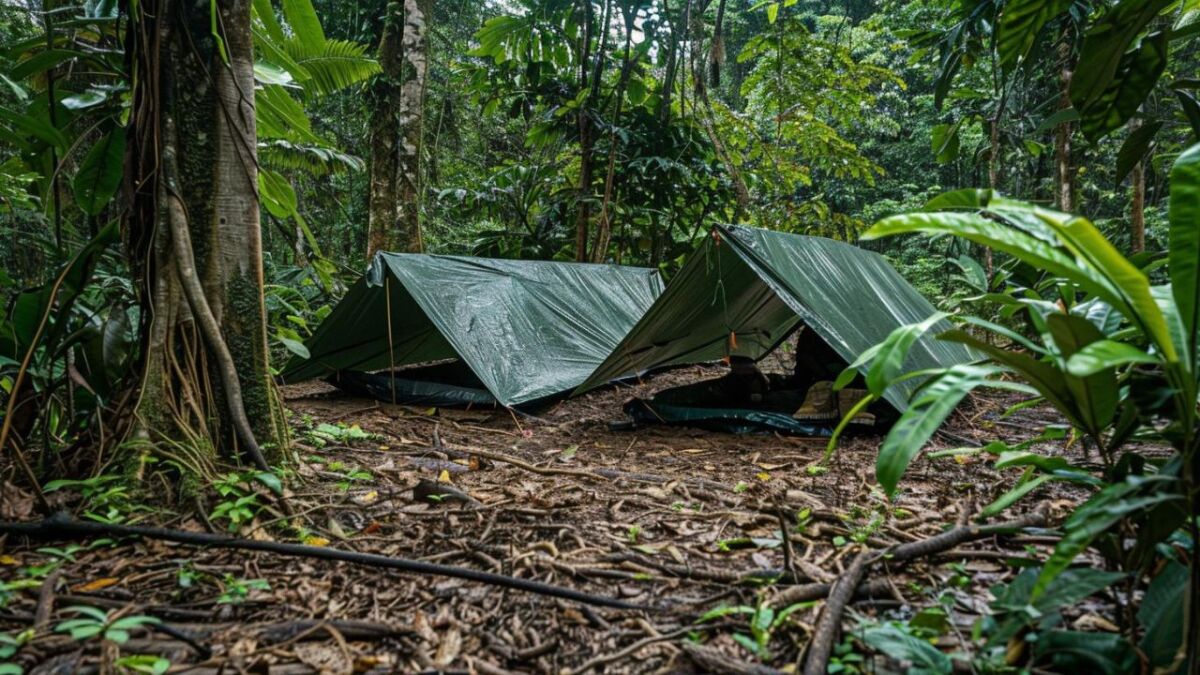
What is a survival vacation? - From everyday life into the wilderness
👉 The key facts from this guide
- Survival vacation is a longer break that challenges you to survive in nature by applying skills such as making fire, building shelter, and searching for food.
- You will learn great things like experiencing nature, appreciation, deceleration, stress reduction, new perspectives, and unforgettable experiences.
- The selection for the right survival vacation is based on personal interests and experiences; preparatory training is suitable for beginners.
- Physical and mental preparation is crucial for survival and personal development during the survival vacation.
- Learning survival techniques such as water and food search, shelter building, making fire, and first aid is essential.
- Careful selection of equipment and knowledge in first aid are central elements for success and safety in the wilderness.
Imagine waking up and the first thing you feel is the cool, damp forest floor beneath you. The air is fresh, scented with pine needles and earth.
This is no ordinary vacation - this is your survival adventure.
You feel alive, but at the same time a small uncertainty is gnawing at you.
How will you fare if you only live off of what nature provides you?
You've heard of these journeys, felt that longing to explore the wild expanses, but the flood of information out there has overwhelmed you.
You ask yourself many questions.
- How do I prepare?
- What skills do I need?
- And let's not forget: How do I conquer my fear of what lurks in the depths of the forest?
I know these concerns all too well - and I took the leap.
I will show you the way to your personal survival trip. Adventures, experiences, and a deeper self - that's what you can look forward to on your survival vacation. Let's do this!
Survival Vacation: Between Adventure and Self-Discovery
A survival vacation - that already sounds like a story you tell your grandchildren, doesn't it? But what is really behind it?
But what is a survival vacation?
A survival vacation is an extended break that challenges you to survive in nature by applying skills such as making fire, building shelter, and foraging for food. It is an adventure that demands not only physical abilities but also mental strength.
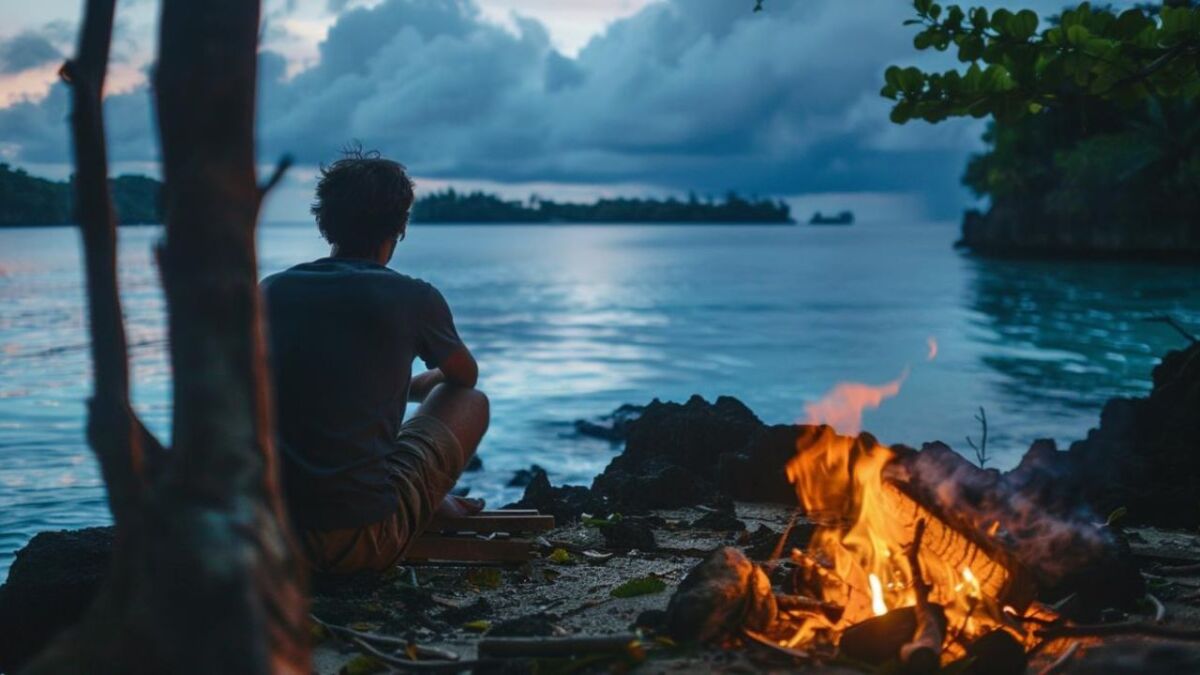
SURVIVAL VACATION is More than Just Camping
Imagine being in the wilderness, far away from civilization and everyday stress. A survival vacation has this "cut-off" point where there is no turning back. You, your gear, and nature - so pure that you learn to appreciate every sip of water.
You're not camping there, hopefully you're aware of that, right?
But what is the difference between a survival vacation and a survival training?
| Feature | Survival Training | Survival Vacation |
|---|---|---|
| Environment | Planned learning environment, often near the city, close to civilization | Pure nature, far away from civilization, in Sweden or on an island in the south |
| Purpose | Learning and mastering survival techniques in a structured course | Personal experience and self-discovery in the wilderness, applying learned skills |
| Structure | Often structured with a curriculum and goals | Free and unbound; wilderness as the teacher |
| Location | Often in own country | Can take place anywhere, often far from civilization |
| Experience | More didactic and educational | Raw, unpolished, and authentic |
| Teaching Method | Instructors and structured exercises | Learning through direct experience and challenges, often with instructors |
| Connection with Nature | Often limited by proximity to civilization | Deep and immediate, with a strong appreciation for every resource |
| Preparation | Often offer the opportunity to rent equipment | Thorough preparation and bringing the right equipment is essential |
| Risk | Very low risk | Carries a higher risk |
The conclusion:
- Survival Vacation: For adventure seekers and nature lovers who are looking for a real challenge and want to test themselves.
- Survival Training: For those who are keen to learn survival techniques and strengthen their skills in the wilderness.
Which option is the right one for you?
It depends on your personal interests and experience. If you already have survival knowledge and are looking for an adventure in the wilderness, a survival vacation is the right choice.
If you have no experience yet or want to improve your skills, a survival training is recommended.
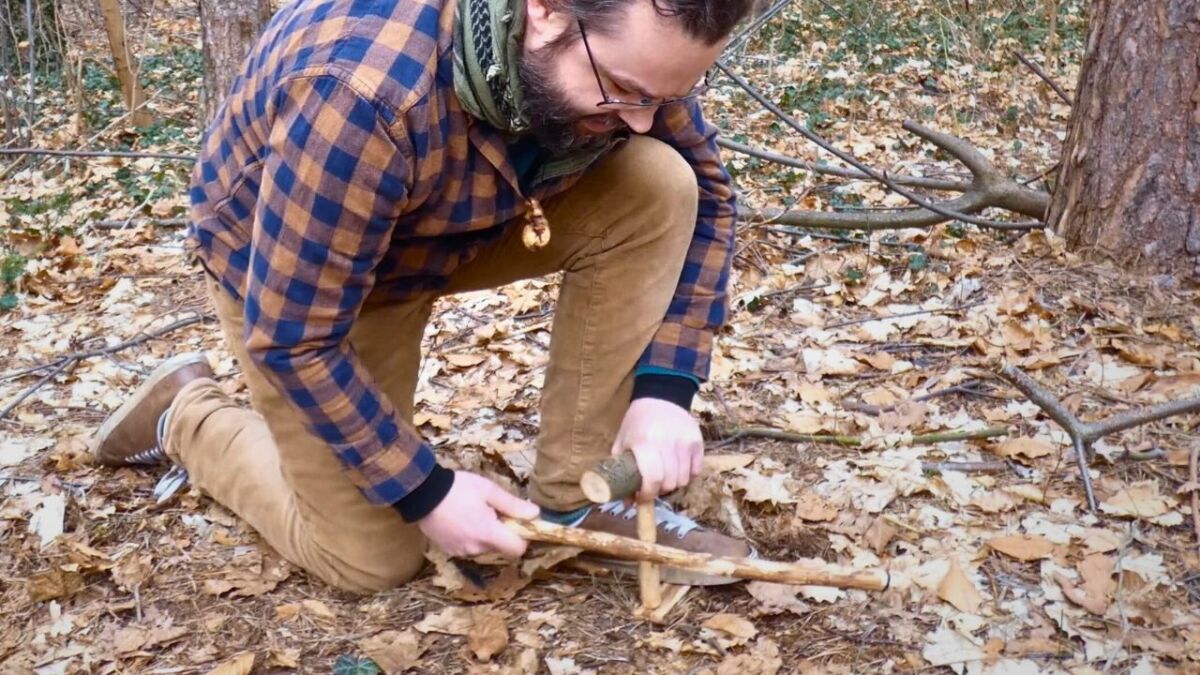
A survival vacation can be arranged with a provider. They provide the framework, such as the location, and sometimes also medical care for emergencies.
On the other hand, you can also plan your survival vacation without external instructors and just head out. You could, for example, head to Sweden or Norway.
Then you decide everything yourself, like:
- You choose the level of challenge.
- You decide on the duration - a weekend, a week, or longer.
- Short trip: A few nights to get a taste of the survival feeling.
- Medium-length: Up to two weeks, for deeper immersion and learning.
- Long-term adventure: For those who are serious, stay longer - and become one with nature.
- You define the boundaries within which you want to move.
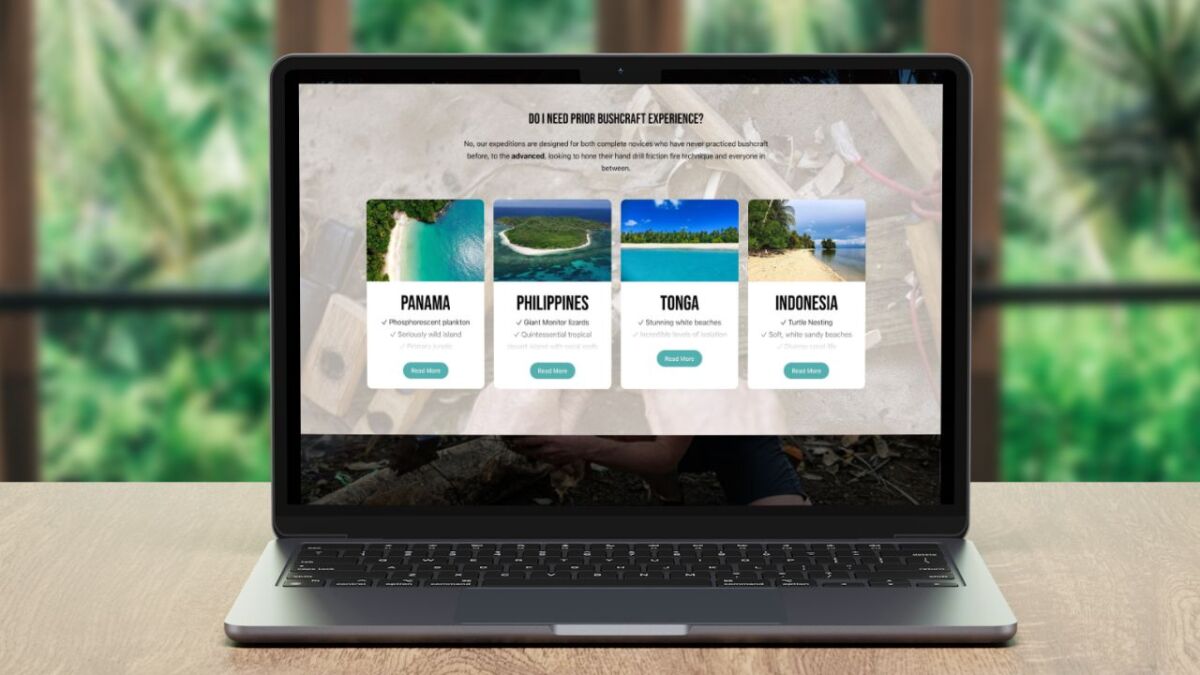
And when it gets too much? The emergency exit
Pause button in the wilderness? Just like on any vacation, you can decide when it's enough. Good providers always have a plan for a quick, safe exit.
A survival vacation is not just a change of scenery. It's the full package - chosen freely, but determined by nature, as fascinating as it is challenging, and with enough room for changes. Here you are not a tourist, but an explorer on your territory.
Your compass to yourself: What you gain from a survival vacation
Come with me on a journey that is more than just a trip. A survival vacation will open your eyes, not only to the beauty of nature, but also to your own inner strength.
Let's explore the treasures that this experience has in store for you.
Find Your Way - Your Path Through the Wilderness
It's like an intense yoga session, except the morning air invigorates you and you choose your mat.
The goal? Getting to know yourself better, feeling yourself, being present in the here and now.
What does that mean specifically?
- Mindfulness sharpens: You increasingly notice every small change around you and learn to live at the moment.
- Nature experience builds: It is a deep immersion in nature. You establish a connection that only the wilderness can provide. You learn to understand the language of nature and communicate with it.
- Appreciation and gratitude: In the wilderness, it's the little things that matter. A warm sunbeam, clean water from a stream, the beauty of a starry sky without light pollution. You learn not only to recognize these moments but to deeply appreciate them.
- Self-confidence grows: You learn to overcome challenges and solve problems that you encounter in everyday life.
- Resilience increases: You learn to deal with stress and setbacks and emerge stronger from them.
- Creativity and problem-solving skills are promoted: You find new solutions to problems as you must cope with limited resources.
- Deceleration and stress reduction: You distance yourself from the hectic everyday life and find peace and relaxation in nature.
- Physical fitness: You move a lot in the fresh air and strengthen your fitness. Read more about "Forest Fitness" here.
- Deeper connection to yourself: You learn more about your needs and limits.
- Clarity and focus: You gain clarity about your goals and values in life.
- New perspectives: You gain new perspectives on your life and your environment.
- Immune system strengthening: By breathing fresh air and moving in nature, you strengthen your immune system.
- Connection to other people: You experience community and solidarity in the group when you are not alone.
- Connecting experience: You collect unforgettable memories and strengthen your relationship with nature.
I can only confirm that a longer life outdoors changes you. Unfortunately, you won't achieve that with a survival day course - you have to be out for several days.
You will feel what is truly important to you in life.
Who your real friends are. How important your family or partner might be to you. And you will learn to appreciate things that previously had little value.
A hot shower, a heater, a refrigerator with food in it - all of this you will come to appreciate. Because many things in our world are not taken for granted.
A survival vacation deep in the wilderness can push you to your limits, but it can also break boundaries and spark new inspiration.
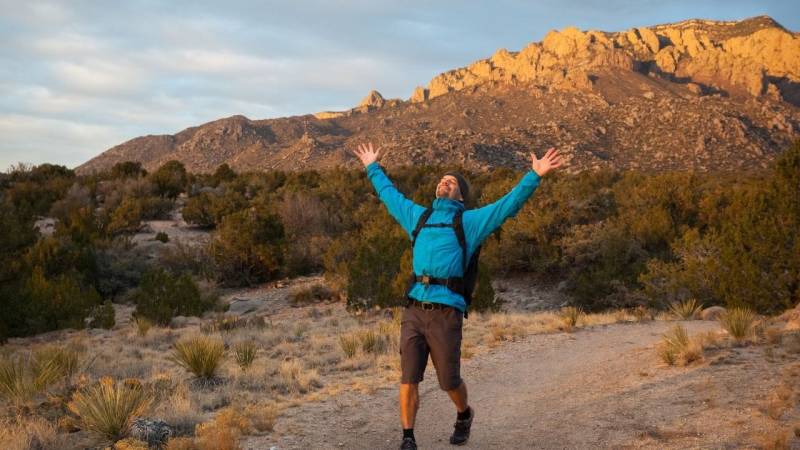
Learn what it really means to survive
The skills you need here are mostly indispensable. If you are traveling alone, I highly recommend that you familiarize yourself with them beforehand and attend several survival trainings.
Depending on the level of difficulty, they are either required at survival vacation providers or you will have an instructor on hand to guide you through the skills.
I would like to list a few things for you that you will likely be confronted with.
Find and Purify Water:
- Locate sources of water in nature.
- Techniques for water purification and treatment to make it drinkable.
- Understanding the importance of hydration and how to avoid dehydration.
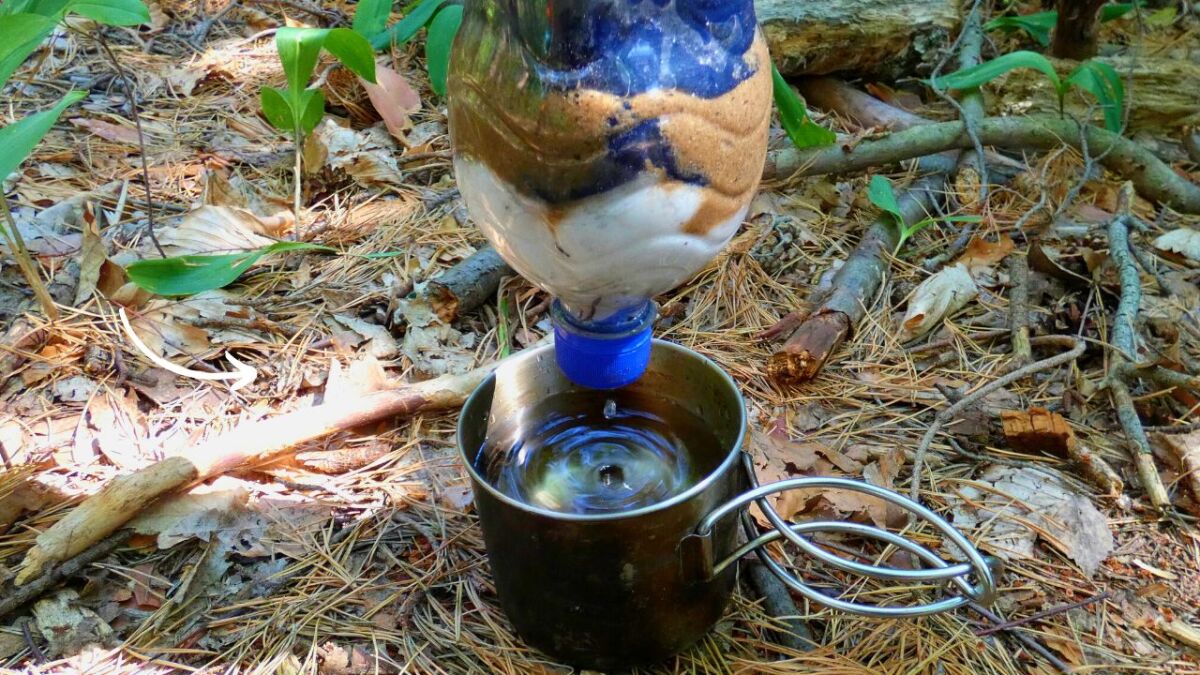
Food Search and Procurement:
- Identification of edible plants and insects.
- Setting traps and hunting techniques for smaller animals.
- Basics of fishing with minimalist tools.
- Safe preparation and preservation of found food.
Construction of Shelters:
- Choosing a secure and effective campsite.
- Building various types of emergency shelters using materials from the surroundings.
- Insulation techniques to stay warm and dry.
- Setting up tarps and hammocks.
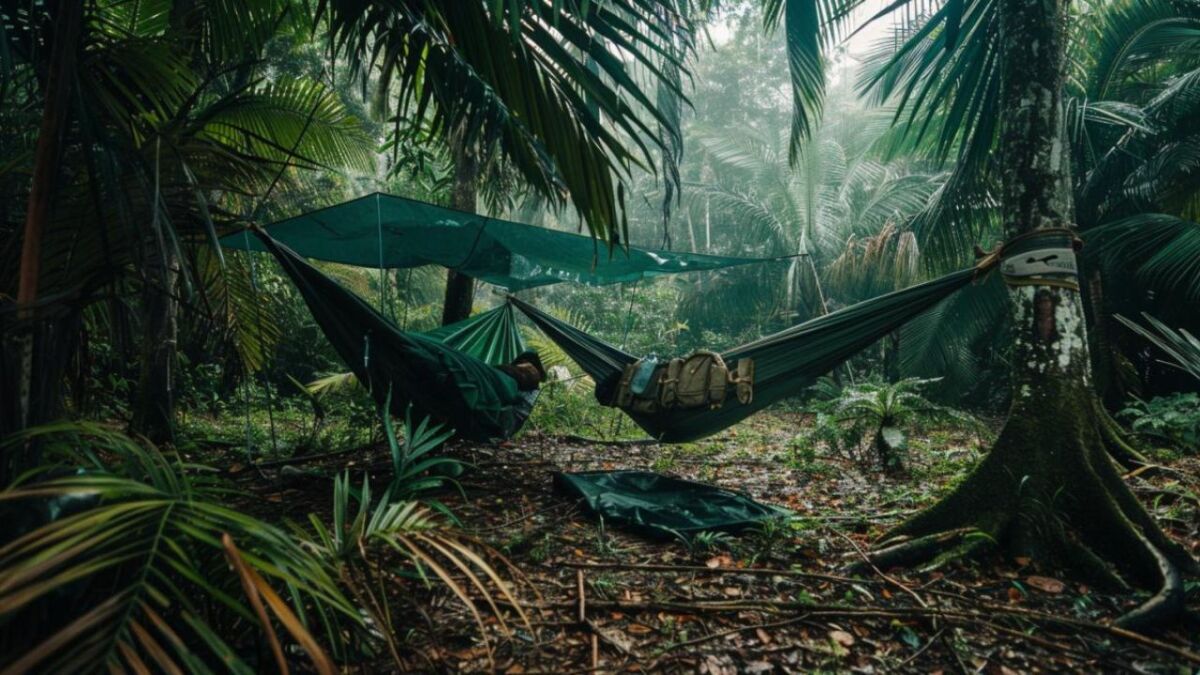
First Aid and Self-Care for Injuries:
- Basic knowledge in First Aid and treatment of common injuries and ailments.
- Natural remedies and their application.
- Prevention of injuries and illnesses in the wilderness.
Making fire:
- Various techniques for making fire without modern tools.
- Safe handling of fire to prevent forest fires.
- Using fire for warmth, protection, food preparation, and signaling.
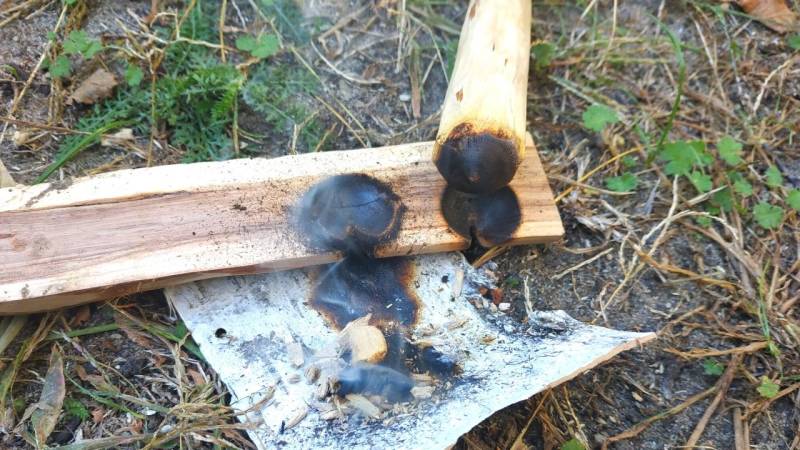
Orientation and Navigation:
- Reading maps and using a compass.
- Navigation using natural signs and star constellations.
- Strategies for self-rescue and finding the way back to civilization.
Rope Knowledge and Knots:
- Knowledge of different types of ropes and their uses.
- Learning different knots for building shelters, setting traps, and other survival situations.

Weather and Environmental Awareness:
- Understanding and prediction of weather conditions.
- Adaptation to different environments and climate zones.
- Minimization of ecological footprint and sustainable survival.
Making tools and every day items:
- Creating simple tools from wood, stone, and bone
- Building containers and baskets
- Making fishing gear, such as hooks
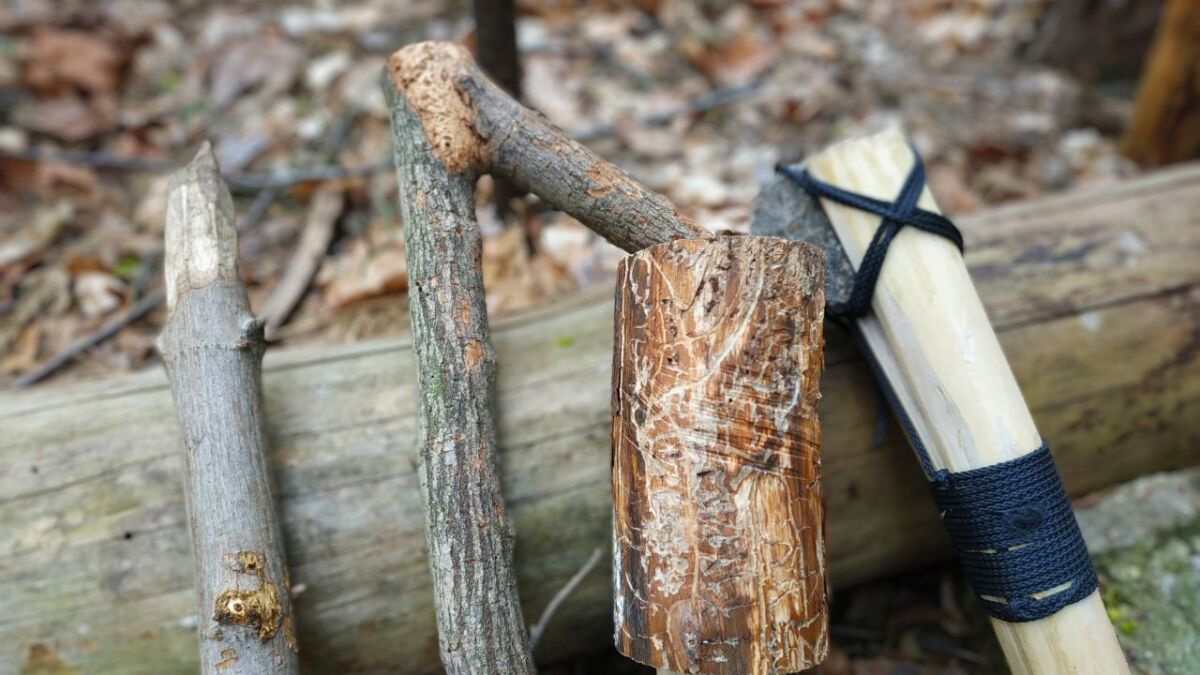
Animal Science:
- Behavior of wild animals and tracking
- Avoiding encounters with dangerous animals
The fact is: These skills will not only get you through the wilderness, but also sharpen your mind for solutions, regardless of where you stand.
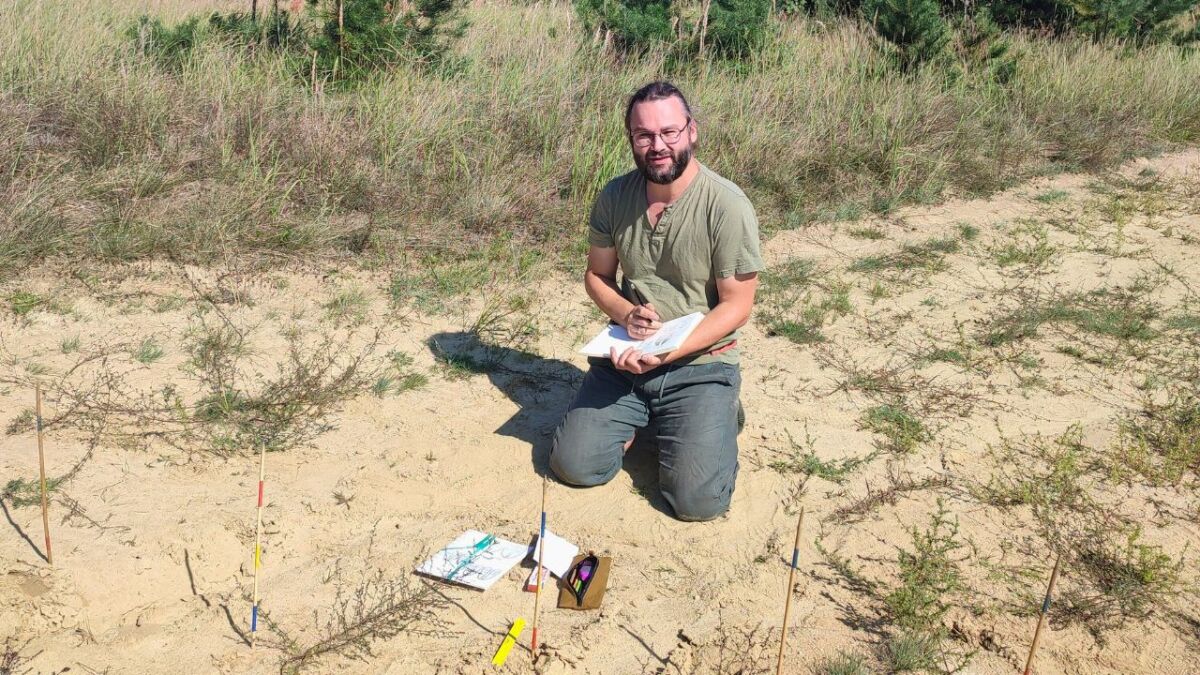
From the office chair to the wilderness: Is a survival vacation right for you?
Now it's getting serious.
A survival vacation sounds cool, but is it right for you?
It's about more than just wearing a bandana and lighting a campfire.
Do you have what it takes to be a Survivor?
Survival vacation is a challenge for body and mind, not only for survival experts. I speak from experience when I say:
You need a dose of courage and the willingness to learn new things.
It's about self-confidence and saying yes when your gut feeling might be whispering a quiet no to you.
As I mentioned above: Without the right preparation, you'll look old. Even without ten years of scout experience, you can start, but solid knowledge is important.
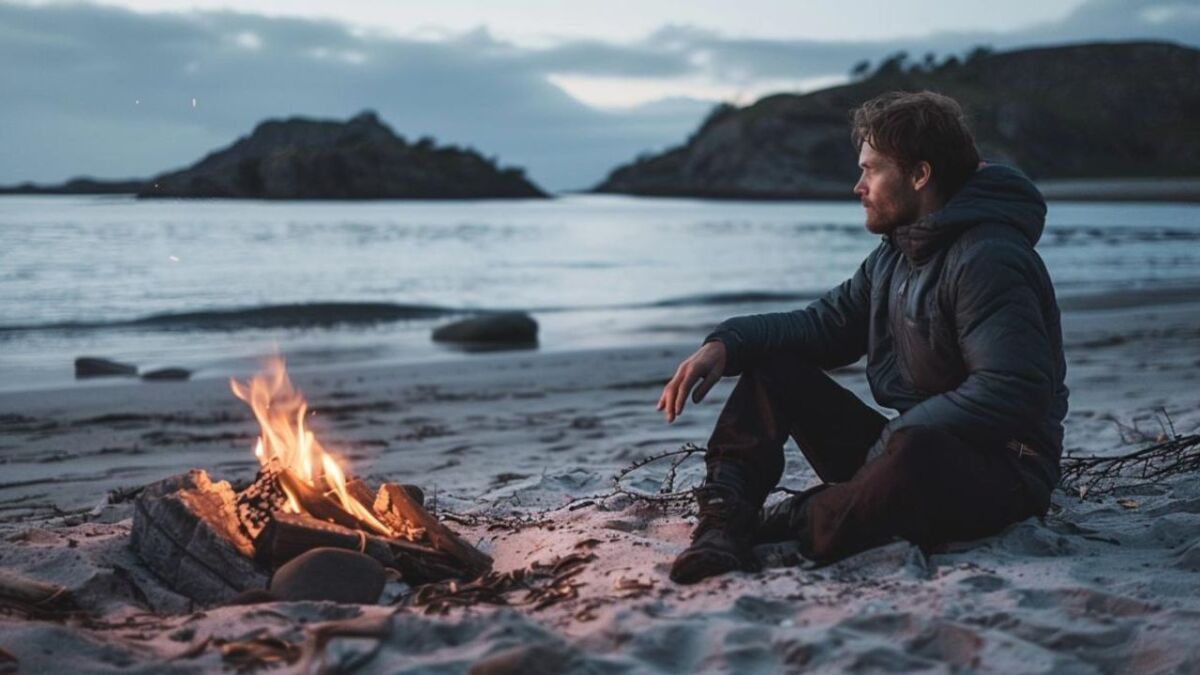
Be prepared, but fear not
The challenges are there, no question - but they are what make your adventure unforgettable. With preparation and the right mindset, you will overcome them.
At the end of the day, when you look at your self-made campfire, you know it was worth every challenge.
Finding the Inner Center: Physical and Mental Preparation
Physically, you should be reasonably fit. We're not talking about marathon training, but you should not be afraid of walking a few kilometers.
It starts with a backpack that suddenly feels heavier than your expectations, and may end with a scratch you get while chopping wood.
👉 The physical demands in the wilderness are real and unforgiving.
What you might be confronted with:
- Long-distance hiking: Kilometer after kilometer, often over rough terrain.
- Carrying loads: Your gear is yours alone - including the weight.
- Natural obstacles: Crossing rivers without a bridge, climbing cliffs without a rope.
- Endurance and patience: Making fire in wind and rain, finding the perfect shelter, avoiding animals, finding water.

Survival begins in the mind
When only the roof of leaves and stars stretches above you, a conversation with your self begins, which outshines many thrillers.
Challenges for the mind:
- Silence: Understanding that the absence of civilization noise is not a signal of danger, but a gift of peace.
- Darkness: It teaches you that you don't need to see everything to understand, and not all shadows are threatening.
- Isolation: You will realize how much you are embedded in familiar social networks and what it means to leave them.
- The Unforeseen: The best plans can be overturned. The unknown challenges your adaptability and improvisational skills.
Especially the isolation is difficult for many people. Most of us are not used to being completely cut off from civilization.
Read also
The Hidden Power of Your Mind: Survival Starts in the Head (Psychology of Survival) - Discover how to maximize your mental strength in the wilderness - an essential guide for every outdoor, wilderness, and survival enthusiast.
The key lies in the mind: mental training
You can not only prepare yourself physically. Visualize success. Meditate. Build a relationship with silence and solitude. Learn to deal with discomfort and train your patience. All of this strengthens your mental fitness.
Learn here how to stay positive in difficult outdoor situations.
➡️ Stay positive despite adversities: Your survival guide for crises
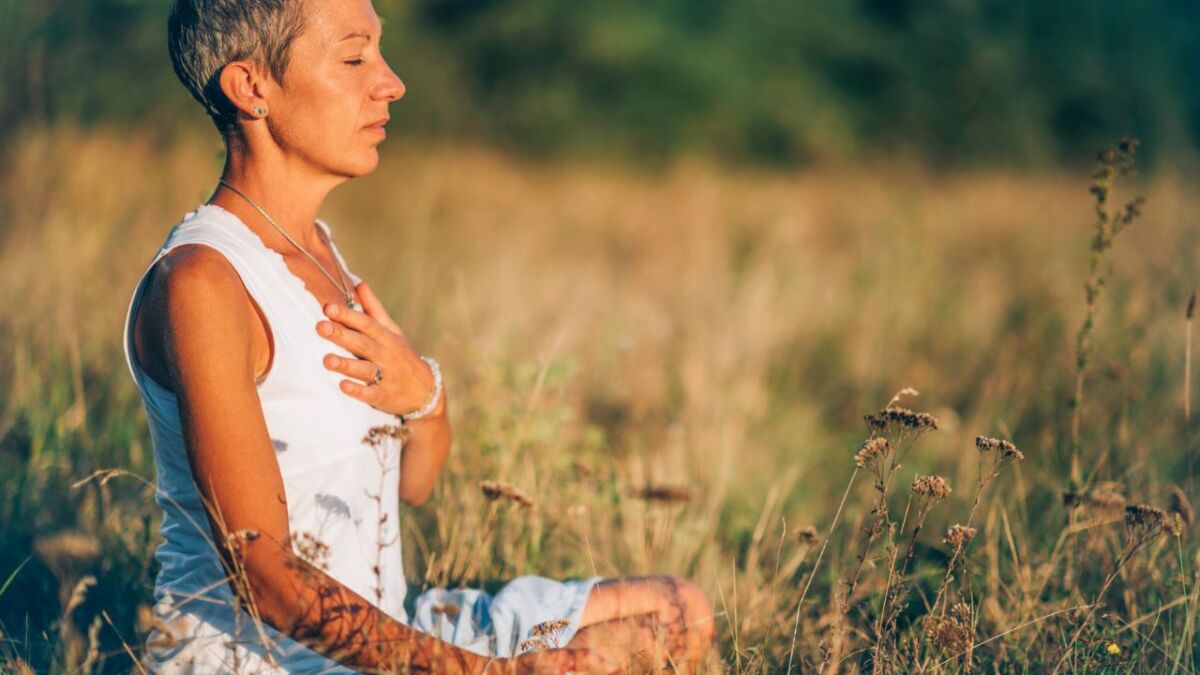
So close to the sky, so far from the ground
Sure, the views are stunning, but weather moods can put the survival vacation to the test. Unforeseen events like storms or heatwaves require flexibility and quick thinking.
Nature is unpredictable, its mood swings legendary.
Get ready for the following:
- Storms: They come quickly and can turn tents into kites.
- Heat: Dehydration is a stealthy enemy. Drink before you're thirsty.
- Cold snaps: Hypothermia is no joke. Warm clothing and a well-insulated sleeping bag are lifesaving.
- Fog: It can be so thick that you can't see your hand in front of your face, making navigation in the terrain a challenge.
Find out here how to read weather and nature in the wilderness correctly.
Read also
Weather forecast with animals, plants or clouds - assess the weather through nature observations - Learn to read the weather through nature observations. Recognize weather changes through clear signs from animals, plants, clouds, and wind.
The Hunt for the Next Bite
Back to the roots: Being self-sufficient means earning every bite.
Collecting berries, fishing, or identifying edible plants - it becomes part of your daily life, and often these activities take up many hours.
If you are keen to know more about this, then click here.
➡️ 7 Survival Options to Find Food in the Wilderness
Drinking water is essential. Here are 8 methods to boil water without a pot:
➡️ Boiling water without a pot: The 8 best professional methods
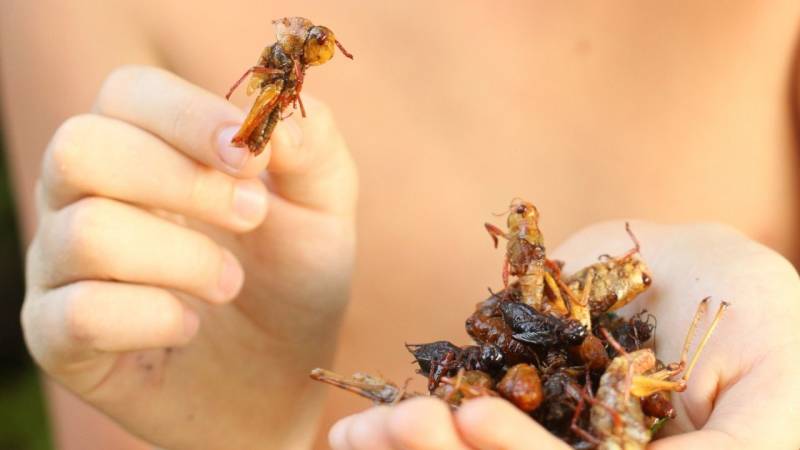
Scratches and Bruises - First Aid in Nature
Small accidents are part of it. You learn to take responsibility for yourself and your team, and stay calm when you have to treat a wound.
Get yourself a solid first aid kit and learn how to use it.
What I have learned:
- Fast and effective first aid
- Importance of safety and caution
You can find more on the topic here.
➡️ Bushcraft First Aid Kit: assembling and using
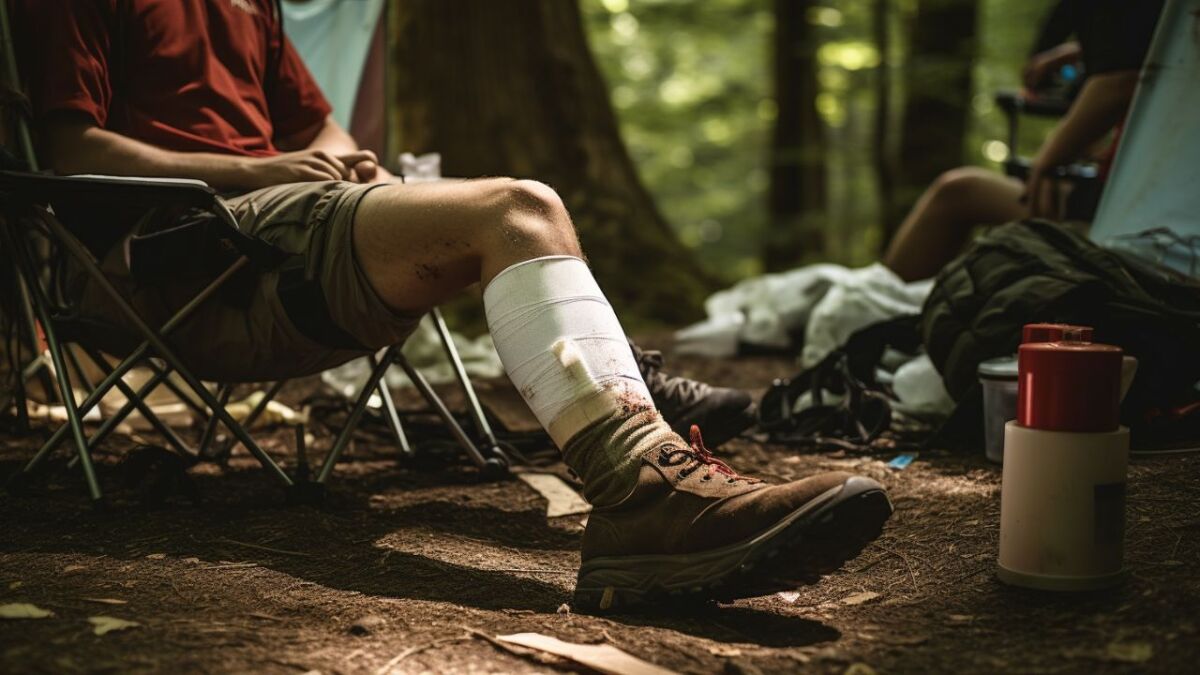
Your loyal companion: The equipment list
The right stuff in your backpack can be a real lifesaver. Here's a checklist that I always use as a basis:
- Knife: A fixed, sturdy knife. A Swiss Army knife is your backup.
- Fire starter: No fire, no warm food. Or warm toes.
- Water filter: Because no one wants Giardia as uninvited guests.
- Emergency shelter: A lightweight tarp or emergency bivvy bag can be worth its weight in gold.
- First aid kit: With extra blister plasters. Trust me.
- Fishing kit: So you can easily obtain food.
- Rope / Cord: This will make your shelter weather- and storm-proof.
- Metal container: How else will you cook?
You want to know which 7 things you absolutely need on a deserted island? Then just check here. I have listed everything important for you in the comprehensive guide:
➡️ What equipment items do you need on an island?
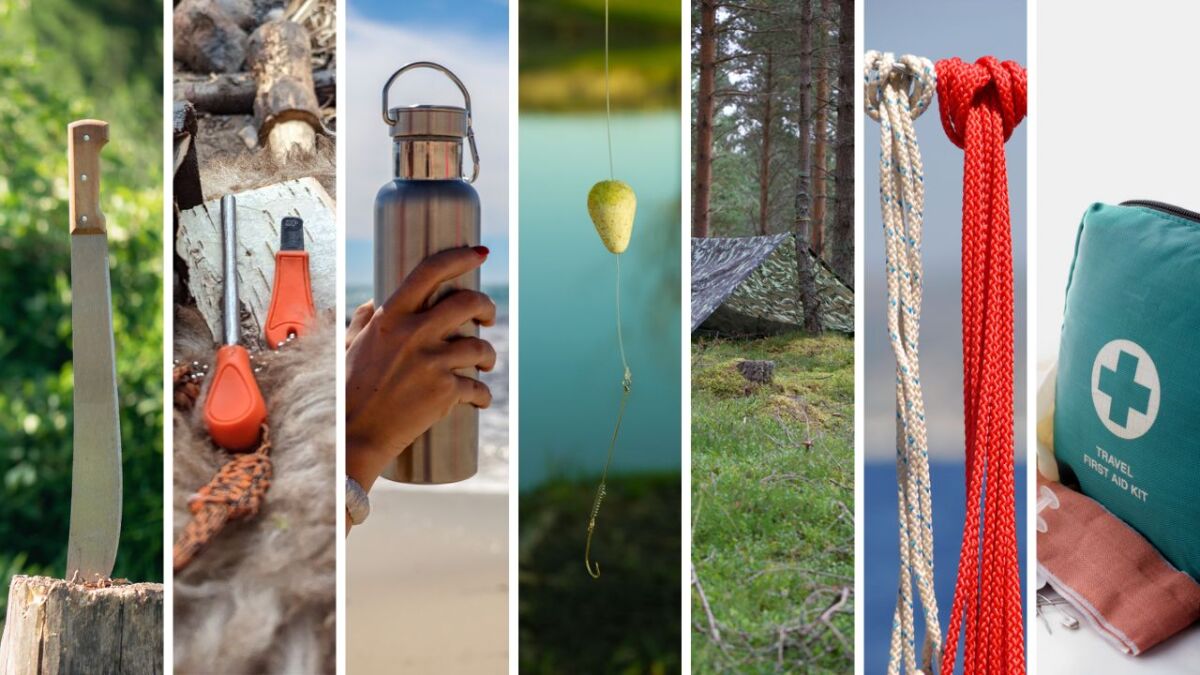
And if you are interested in more equipment, take a look at these guides from me:
- Survival Equipment: these 11 tools you need to survive in the wilderness
- The 6 best survival knives - survival in the wilderness and city
- The best bushcraft knife - your ultimate buying guide
- My complete wilderness equipment list - find out which items I own and use myself
I have looked at so much equipment over the past years, first you can find my equipment category here. And secondly, many reviews of equipment that I have already had in my hands.
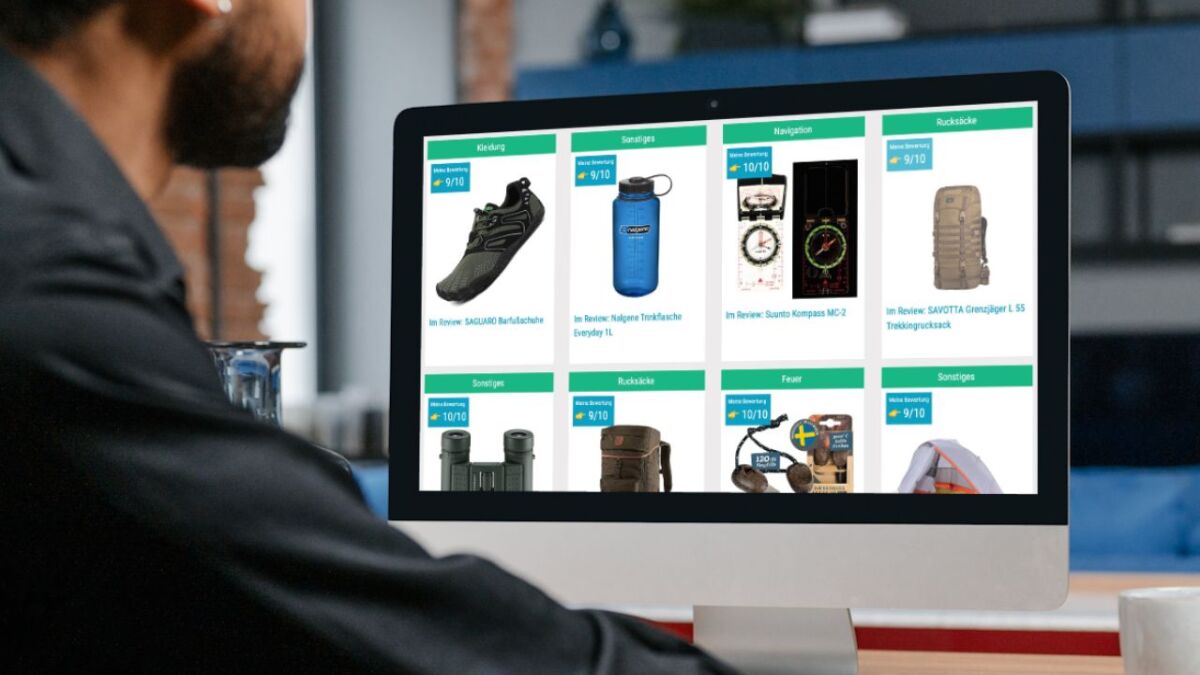
Survival Knowledge: Not Just Buried in Books
Learn about edible wild plants, first aid in the forest, and orientation techniques. A few weekends in the local wilderness will teach you more than a thousand YouTube tutorials. Trial and error is the language of nature.
8 common mistakes in the wilderness can be found here.
➡️ Survival Tips: 8 Common Wilderness Mistakes & Their Solutions
Navigating Through the Jungle of Offers: Your Path to the Perfect Survival Vacation
You are prepared and motivated - but where to start?
The world is big and the selection of survival experiences is huge. I'll show you how to separate the wheat from the chaff and find the right one for you.
Setting Criteria: the Key Factor in Selection
Foremost, you should sort through the maze of offers. What is important to you? Authenticity, security, recommendations? Here is a list that I put together before every trip:
- Qualified Guides and Instructors: They should know what they are doing. Refer to their resume.
- Good Safety Protocol: In case something happens, what are the next steps?
- Positive Reviews: What do other participants say? Others should be satisfied.
- Sustainability: We want to enjoy nature, not exploit it. Is there a concept in place? Are locals involved or compensated?
- Group Size: Smaller can be better for the true wilderness experience.
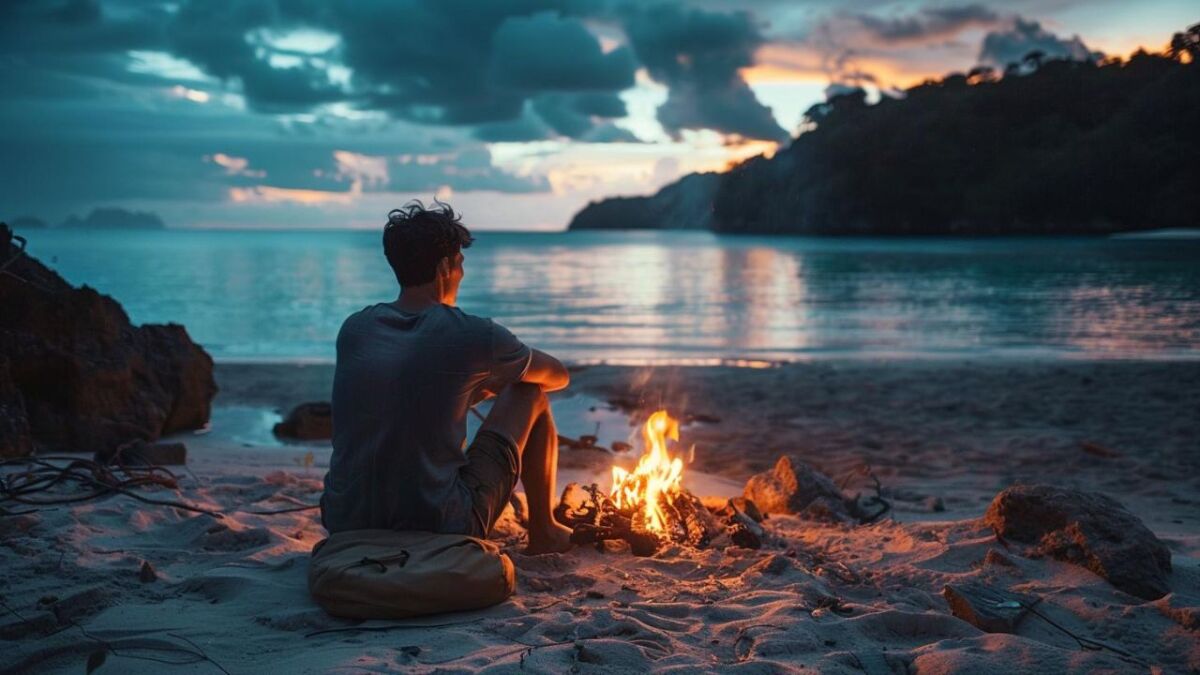
Destinations: Where Your Heart Beats Wildly
The destination makes all the difference. From the lush wilderness of the Amazon, to the vast taiga of Siberia, to our local, not to be underestimated Harz region. I always choose places carefully.
What do you need to consider:
- Climate: Can you handle heat as well as cold? Pack accordingly!
- Vegetation: Jungle camping is different from camping in the tundra.
- Wildlife: Dealing with wild animals should be part of the program.
- Accessibility: Sometimes the journey is half the trip.
Typical areas for your survival vacation are:
- Amazon Rainforest, South America: Survival vacationers can learn skills such as navigating dense jungle and survival techniques in humid conditions here.
- Alaska, USA: From navigating snowy terrains to fishing and hunting, there are numerous challenges here.
- Outback, Australia: Survival enthusiasts can learn how to survive extreme heat, locate water sources, and navigate the dangers of the wilderness.
- Sahara, North Africa: Survival vacationers can learn how to navigate extreme heat and dryness, find water, and protect themselves from the dangers of the desert.
- Remote Island in the Middle of Nowhere: Channeling Robinson Crusoe vibes, here you are completely cut off from the outside world.
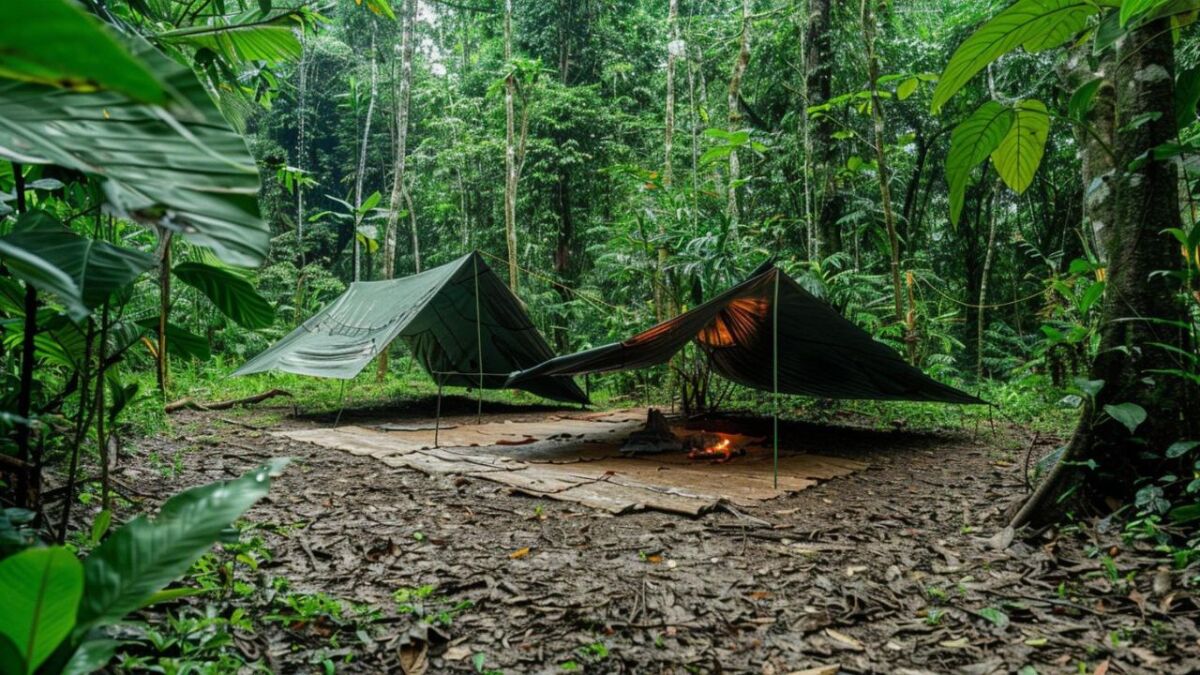
Comparison makes you safe: Take a closer look at offers
Sure, the price is definitely something to consider. But not only that. Compare the scope of services, group size, guide qualifications, and the fine print.
Some survival vacations cost 500 €, others 5000 €. The prices vary depending on the content. A trip to the wilderness of Sweden is likely not going to cost as much as a flight to a remote island.
Checklist for comparison:
- Inclusive services: What is included in the price?
- Additional costs: Who is responsible for the arrival? Who transports the equipment? Is equipment rental available?
- Terms and conditions: Check cancellation policies and insurances - boring, but important.
Take a close look, ask questions, educate yourself. In the end, you want an adventure that makes you grow and brings you safely home.
Here is a list of providers:
English speaking:
- https://www.docastaway.com
- https://www.bushmasters.co.uk/island-survival/
- https://www.desertislandsurvival.com
- https://nolimitjourneys.com/destinations/island_survival.html
- https://www.jordanjonas.com/expeditions
- https://www.truenaturesweden.com/survival-2-weeks
German speaking:
- https://wandermut.de/pages/island-survival-panama
- https://lebe-die-wildnis.de/amazonas-dschungel-expedition/
- https://synapsenbrenner.de/survivalurlaub/
The campfire is coming to an end: What you take with you
One last time the flames flicker high before the embers gently turn to ash.
We are at the end of our journey through the survival holiday jungle. What remains are the sparks of insight that we have gathered.
The Essence of Your Journey into the Unknown
You are standing there now, backpack packed, ready for whatever may come. If you have followed me this far, you now know:
- What Survival in the Wilderness Means
- What You Gain from It
- Challenges That Await You
- How to Prepare Yourself
- How to Recognize Good Providers
This knowledge is your inner compass that will guide you.
The first step on your new path
The journey begins with the first step - sounds cliché, but is as true as fire is warm.
Start small: A weekend trip to the nearest national park or a survival course to get acquainted with what's waiting for you out there.
Now it's your turn: Your Echo in the Wilderness
I have shared my stories, now I want to hear yours.
Your opinion is like the call of the cuckoo in the valley - it gives space to the echo. Take a moment and share your thoughts in our survey. It's your chance to keep the magic alive.
I am curious what moves you to leave the safe harbor and follow the call of the wild.
What is your inner compass that carries you through the thickets and over the mountains


Author of the guide
Martin Gebhardt
Hey, I'm Martin. On my blog, you will learn the basics and numerous details about living in the wild. I think survival, bushcraft and the good life in nature are the keys to happiness. Find me here on Instagram or on YouTube. You can find more about my mission on the About Me page.
Was this guide helpful?
14 people found this guide helpful.
5.00 out of 5 points (14 Ratings)
Comments (0)
This post may contain affiliate links. So if you click on the links and make a purchase, I will receive a small commission at no additional cost to you. Click here, to learn more about it.


